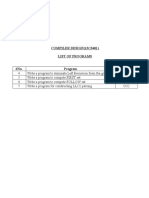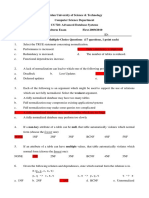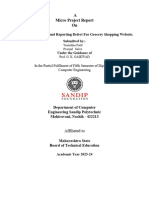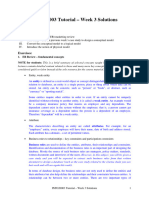0% found this document useful (0 votes)
46 views31 pagesCD File
This document contains a file with the name "Compiler Design practical" and details about the student including name, branch, semester, and enrollment number. It also contains an index with 10 empty entries. The rest of the document consists of programming questions and code snippets with outputs related to compilers and grammar checking.
Uploaded by
yipop57406Copyright
© © All Rights Reserved
We take content rights seriously. If you suspect this is your content, claim it here.
Available Formats
Download as PDF, TXT or read online on Scribd
0% found this document useful (0 votes)
46 views31 pagesCD File
This document contains a file with the name "Compiler Design practical" and details about the student including name, branch, semester, and enrollment number. It also contains an index with 10 empty entries. The rest of the document consists of programming questions and code snippets with outputs related to compilers and grammar checking.
Uploaded by
yipop57406Copyright
© © All Rights Reserved
We take content rights seriously. If you suspect this is your content, claim it here.
Available Formats
Download as PDF, TXT or read online on Scribd
/ 31
























































































